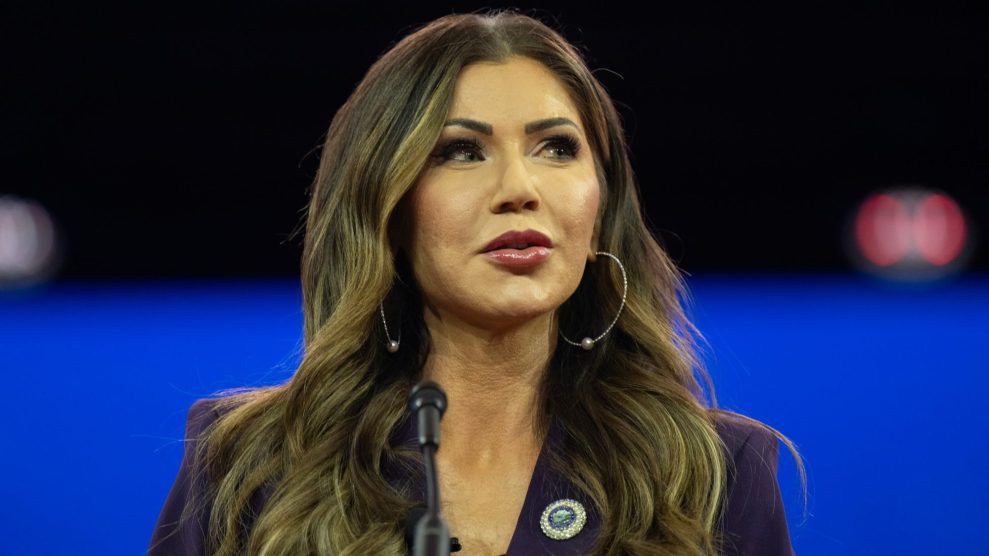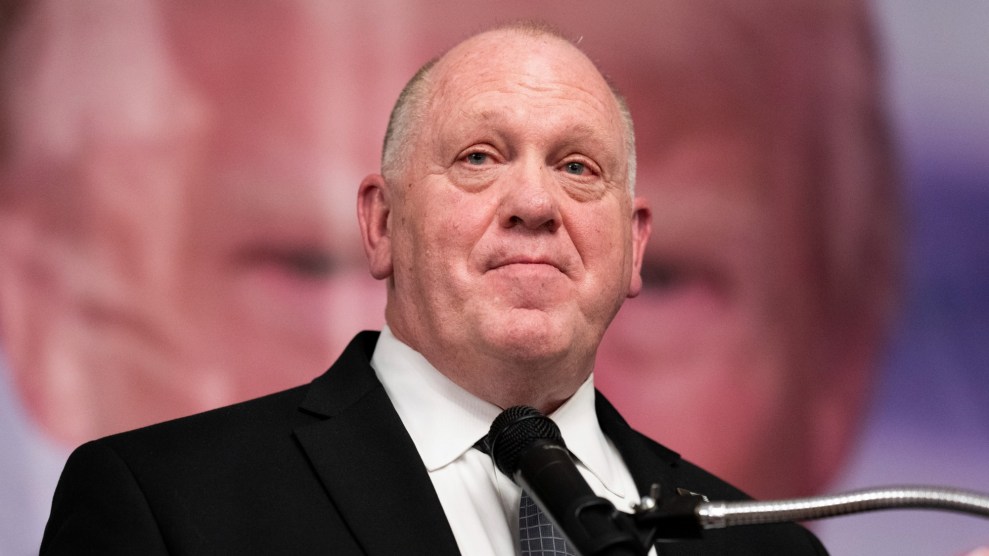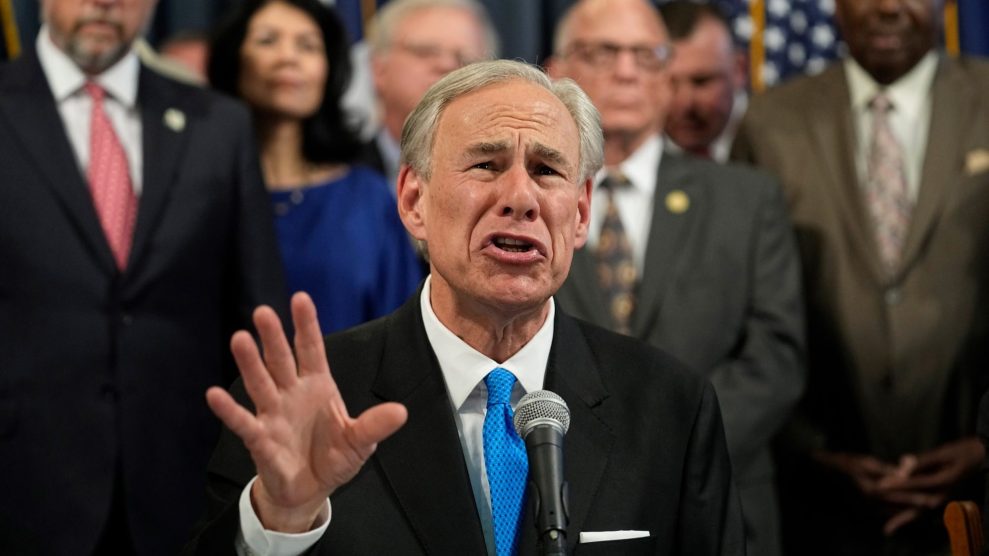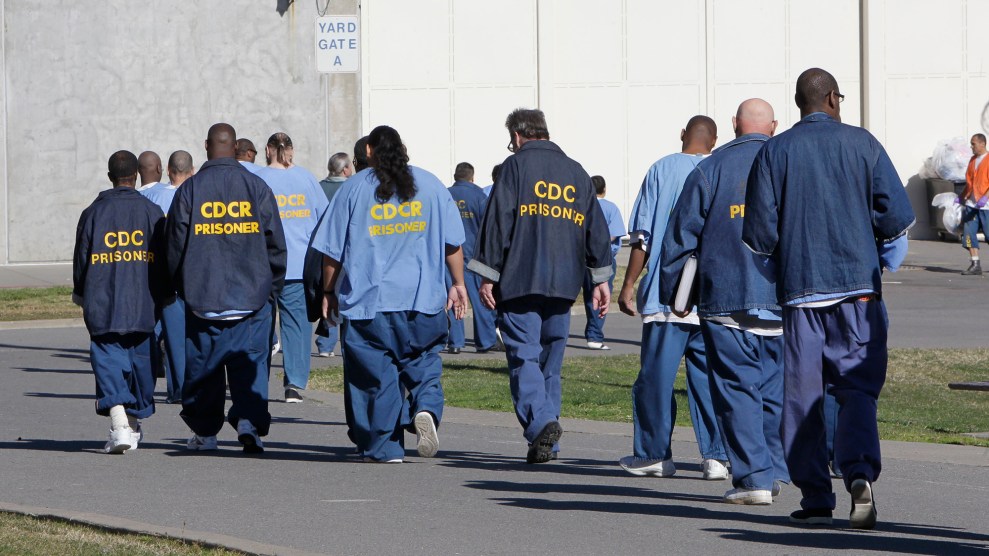
Mother Jones; Lenin Nolly/Sipa USA/AP
After officials repeatedly warned that they would consider stopping the flow of weapons to Israel if it pressed forward with a ground invasion into Rafah, the Biden administration announced it would nonetheless attempt to send more than $1 billion in additional weapons to Israel, The Wall Street Journal reported Tuesday night, citing congressional officials.
The Journal reports that the latest package “includes the potential transfer of $700 million in tank ammunition, $500 million in tactical vehicles, and $60 million in mortar rounds.” Congress will have to approve the latest package.
The latest announcement comes as something of an about-face for the White House: Just last week, President Biden made headlines after he told CNN that he would stop shipping certain weapons to Israel if Prime Minister Benjamin Netanyahu proceeds with a major ground invasion of Rafah—which Israeli forces have already seemingly begun, leading nearly 450,000 people to flee the area since May 6, according to the latest numbers from the United Nations.
White House Spokesperson John Kirby added Thursday that Biden does not believe “smashing into Rafah” will help take out Hamas. Nonetheless, Israel is reportedly moving in. The Washington Post on Tuesday reported that Israeli tanks are coming closer to urban areas; yesterday, State Department Spokesperson Vedant Patel told reporters, “We do not want to see a major operation into Rafah, and we have not seen one yet that we would take issue with.”
On Sunday, Secretary of State Anthony Blinken confirmed on CBS’s “Face the Nation” that the US recently halted the delivery of 3,500 so-called “dumb bombs” to Israel. But Blinken made clear that the administration was still allowing most weapons exports.

A displaced Palestinian girl from Rafah played this week in a building destroyed by Israeli warplanes.
Abed Rahim Khatib/dpa/ZUMA
Representatives for the State and Defense departments, and the White House, did not immediately respond to requests for comment and questions about how they will ensure Israel uses the latest round of weapons in compliance with international humanitarian law and President Biden’s recent comments.
Last Friday, the State Department released a delayed report examining the Israeli army’s conduct and use of US provided-weapons. The department found that “it is reasonable to assess” that Israel has deployed the weapons “in instances inconsistent with its [international humanitarian law] obligations or with established best practices for mitigating civilian harm.” That report also said American officials “do not currently assess that the Israeli government is prohibiting or otherwise restricting the transport or delivery of U.S. humanitarian assistance” to Gaza—though that’s at odds with the experiences of more than 20 humanitarian organizations operating on the ground.
Netanyahu, for his part, refuses to face the reality of the humanitarian toll of the war on civilian Palestinians, arguing that a continued military operation is essential to defeat Hamas. “The humanitarian catastrophe that has been spoken of has not been realized, nor will it,” he said in a statement today.
Workers on the ground paint a different picture. Twenty aid groups signed onto a letter today condemning world leaders’ failures to act to stem the humanitarian crisis and halt the Israeli invasion into Rafah, writing that “further advancement of the military invasion…will lead to the total collapse of lifesaving services.”
The International Rescue Committee said Tuesday that its emergency medical team was supposed to enter Gaza through the Rafah crossing on Monday but was unable. “What we are witnessing in Rafah is nothing less than a humanitarian catastrophe,” Kiryn Lanning, IRC team lead for the occupied Palestinian territory, said in a statement. “The ongoing Israeli bombardment, combined with the closure of the Rafah crossing, has led to critical fuel shortages and severe movement restrictions, paralyzing all humanitarian operations.”
The U.N. Secretary-General called yesterday for an “immediate humanitarian ceasefire in Gaza and for the release of all hostages,” and said the Rafah crossing should be re-opened immediately to allow for “unimpeded humanitarian access throughout Gaza.”
In the meantime, as a volunteer nurse at Rafah’s only maternity hospital told me last week, medical professionals are scrambling to care for injured patients, pregnant people, and vulnerable newborns with a shortage of basic supplies and fears for their safety.
“There is no safe place in Gaza from a healthcare perspective—and beyond,” she said.
























